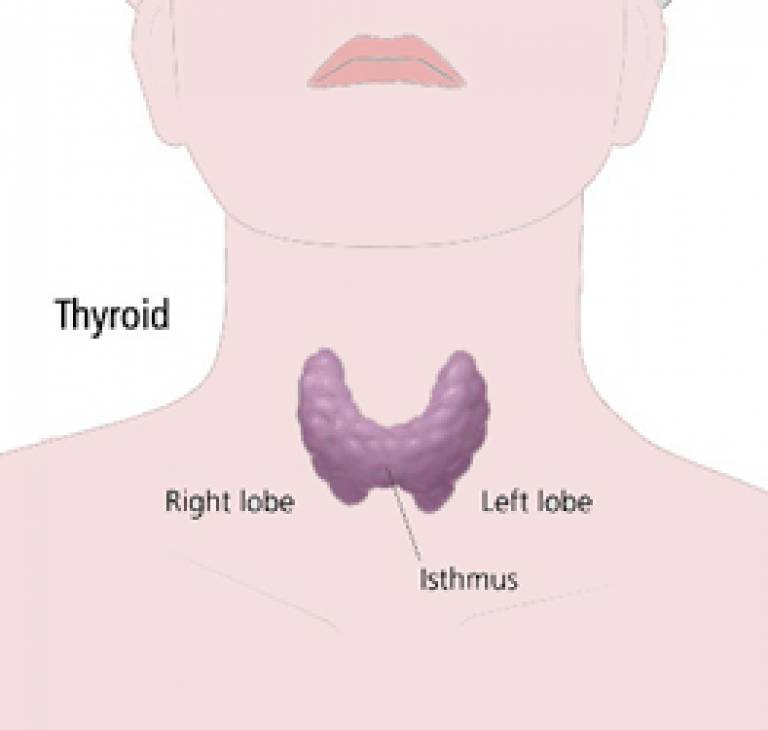'HiLo' thyroid cancer trial may benefit hundreds of patients
4 December 2007
Link:
 ucl.ac.uk/cancertrials/" target="_self">Cancer Research UK & UCL Cancer Trials Centre
ucl.ac.uk/cancertrials/" target="_self">Cancer Research UK & UCL Cancer Trials Centre
The Cancer Research UK and UCL Cancer Trials Centre is conducting a clinical trial for thyroid cancer that could revolutionise treatment. The trial is called 'HiLo' in reference to the comparisons it is making between the effectiveness of high and low radiation doses.
Differentiated thyroid cancer (DTC) is relatively uncommon and slow to develop. Because of these factors it is difficult for clinicians to design large-scale, randomised trials and the potential for relapse may be either underestimated - resulting in patients receiving inadequate treatment - or it may be overstated and patients being over-treated.
There are about 1400 new cases of thyroid cancer each year in the UK, but large-scale research here has been neglected until now. 'HiLo' will allow researchers to address two research questions that have been considered by the thyroid clinical community for several years, but have not yet been resolved.
Patients with thyroid cancer usually have their thyroid gland removed and a few weeks later they are admitted to hospital and given a high dose of radioactive iodine. At this time, they must be kept in an isolation unit for a few days and so have hardly any contact with other people, including relatives.
One of the main aims of 'HiLo' is to determine whether a lower dose of radioactive iodine can be given instead of a high dose, thereby reducing hospital stay and the time spent away from relatives.
The other aim of the trial is to evaluate a drug called Thyrogen, which can improve quality of life in patients just before they have radioactive iodine therapy. The trial will determine whether using this drug adversely affects the radioiodine treatment.
Allan Hackshaw, Deputy Director of the Cancer Trials Centre and 'HiLo' co-investigator said: "Being diagnosed with cancer is already distressing for patients. The 'HiLo' trial will be able to tell us how to treat thyroid cancer patients with a minimum disruption to their lives during the treatment period and whether we can improve their quality of life at this time without compromising effectiveness."
The 'HiLo' trial has been developed by a group of experts in oncology, surgery and nuclear physics. It is the first-ever national trial in thyroid cancer in the UK, and no previous study has been designed that simultaneously addresses two key issues in thyroid cancer treatment. The trial will be run across hospitals in the National Cancer Research Network, and the results and recommendations of the 'HiLo' trial will be used to determine how future patients with thyroid cancer are treated both in the UK and abroad.
The Cancer Research UK and UCL Cancers Centre, now part of the newly established UCL Cancer Institute, was established in 1997 and currently has over 40 open multicentre studies.
The aims of the centre are to develop, conduct and analyse clinical studies in cancer research. Its association with national research groups provides an excellent opportunity to develop novel research methods and in particular, link clinical studies to translational research.
Allan Hackshaw said: "Most of our trials involve investigational medical products. A significant and growing proportion of our work is in phase I/II studies and many of these are with lead investigators based at UCL with translational research projects conducted within the UCL Cancer Institute and other departments. Our location provides an excellent opportunity to increase our role in experimental cancer therapeutics within the UCLH Experimental Cancer Medicine Facility."
To find out more, use the link at the top of this article.
Image: The thyroid
 Close
Close

